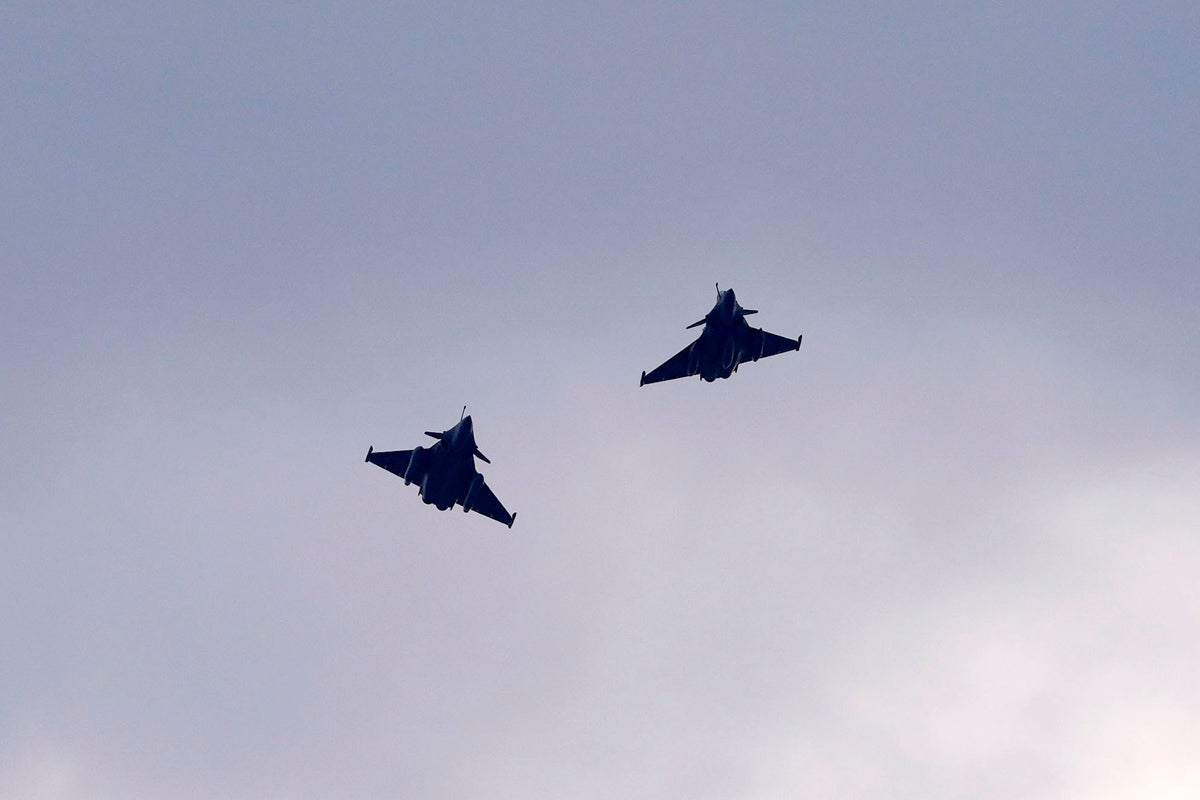
Support truly
independent journalism
French President Emmanuel Macron starts a two-day state visit to Serbia on Thursday with the focus on the possible sale of 12 Rafale multi-purpose fighter jets to the country, which has maintained close ties to Russia despite its invasion of Ukraine.
Macron is to meet populist President Aleksandar Vucic in Belgrade on Thursday evening, when the deal reportedly worth 3 billion euros ($3.3 billion) is expected to be announced.
An official in Macron’s office, who was not authorized to be identified according to French presidential policy, said the warplane talks are part of larger strategy of ″bringing Serbia closer to the EU.″
Serbia needs to upgrade its fleet and the Rafale is a ″strategic choice″ for Belgrade, which could choose to rely only on Russian equipment instead, the official said.
Serbia is formally seeking European Union membership, but under Vucic’s increasingly autocratic rule it has made little progress in the fields of rule of law and democratic reforms, which are the main preconditions for membership in the 27-nation bloc.
In a letter to the Serbian public published in the local media on Thursday, Macron sought to encourage the Balkan nation to pursue its EU future but noted that “the perspective of joining the European Union does not seem to be as attractive as it should.” He cited “concerns and fatigue over the rhythm of accession talks but also sometimes a sort of resentment, even mistrust” of the EU.
“I come here to Serbia again today with a simple message: The European Union and its nations need to have a strong and democratic Serbia in their ranks, and Serbia needs a strong and sovereign European Union to defend and promote its interests with respect of its identity,” Macron said in the letter, published in the liberal Danas newspaper.
Macron also warned that after Russia attacked Ukraine, Serbia’s “balancing game” between the world powers is an “illusion.” He said Serbia will only be able to protect its interests and preserve its identity as part of the EU.
Serbia has been considering the purchase of the new Rafale jets for more than two years, since neighboring Balkan rival Croatia purchased 12 used fighter jets of the same type for about 1 billion euros ($1.1 billion).
The potential acquisition of Rafale jets would allow Serbia to modernize its air force, which consists mainly of Soviet-made MiG-29 fighters and aging Yugoslav combat aircraft.
Russia has been a traditional supplier of military aircraft, including combat helicopters, to Serbia, which has refused to join international sanctions against Moscow for its invasion of Ukraine.
The rapid arming by the Serbian military has worried some of its neighbors following the bloody breakup of the former Yugoslavia in the 1990s. Serbia is almost completely surrounded by NATO member countries.
Selling Rafales to Russian ally Serbia, which has occasionally expressed an aggressive stance toward its Balkan neighbors, has raised some concerns, one of which is how France plans to prevent sophisticated Rafale technology from being shared with Russia.
Asked if there would be a clause restricting the use of the Rafales, the French official said ″in any contract there are clauses that set a framework for the use of such material."
Macron's talks with Vucic will include simmering tensions in the Balkans, especially in the former Serbian province of Kosovo which declared independence in 2008.
Macron’s itinerary also includes a visit to a museum and an economic forum on artificial intelligence in the northern town of Novi Sad on Friday. Also on the agenda is a possible agreement with French energy provider EDF on cooperation in the field of nuclear power plant technology.
——-
AP writers Angela Charlton in Paris and Jovana Gec in Belgrade contributed to this story.







